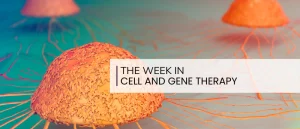Identifying a CAR-T cell therapy target for melanoma

A transmembrane glycoprotein known as tyrosinase-related protein 1 (TYRP1) has been identified as a potential target for a CAR-T cell therapy that treats melanoma.
Immunotherapies have continued to change the cancer treatment landscape by opening new avenues for targeted therapies. While CAR-T cell therapy has shown success in treating hematological cancers, advancements in the development of CAR-T cell therapies for solid tumors have faced challenges due to the scarcity of targets. Only recently was accelerated approval granted by the FDA for a T-cell therapy for advanced melanoma.
In recent developments, a team of researchers from the University of California, Los Angeles Health Jonsson Comprehensive Cancer Center (CA, USA) have developed and demonstrated the efficacy and safety profile of a CAR-T cell therapy for cutaneous and rare subtypes of melanoma. This could overcome the unmet medical need for melanoma patients, who are unresponsive or relapse after initial treatment with standard therapies such as immune checkpoint blockade.
The researchers set out to identify an antigen with elevated expression in cancer cells compared with normal cells. Evaluating cancer databases, the team found that an estimated 30% of cutaneous melanoma patients have elevated expression of TYPR1, with this percentage higher in cases of rare melanoma, leading the team to design a CAR-T cell that targeted TYPR1.
“This protein is intracellular, but a small portion gets to the plasma membrane as part of the vesicular transport of the cell and gets endocytosed again after a short period of time. While in the cell surface, it becomes a target for the CAR-T cells,” stated Cristina Puig-Saus, senior author of the study.
The engineered CAR-T cells were tested in both murine and patient-derived models of melanoma. In vivo and in vitro investigations revealed antitumor activity across the models. Significantly, no systematic or off-tumor toxicities were observed in the immunocompetent murine model.
Previous studies have targeted TYRP1 with monoclonal antibodies, yet this study novelly showcases the efficacy of targeting TYPR1 with CAR-T cell therapy.
Discussing the clinical translation of the therapy, Cristina stated, “these preclinical results pave the way for clinical trials, where the TYRP1-targeting CAR-T cell therapy can be tested in patients with all different types of melanomas. If proven safe and effective in human trials, this treatment presents an exciting prospect for future advancements in the fight against cancer.”
You may also like:
 FDA approves first cell therapy for solid tumors
FDA approves first cell therapy for solid tumors
The US FDA has granted accelerated approval for AMTAGVI™ (lifileucel), a novel cell therapy for advanced melanoma. This is the first cell therapy to be approved by the FDA for the treatment of a solid tumor.